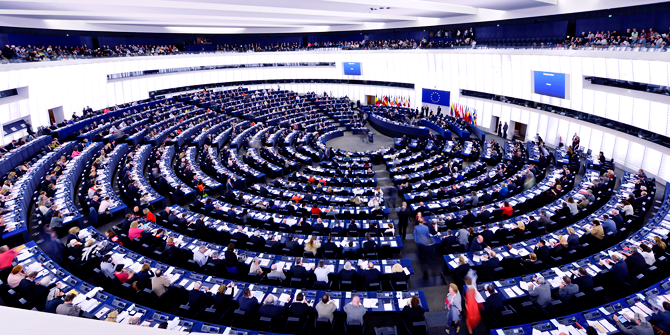The European Parliament has overwhelmingly backed proposals to restrict preventative antibiotic use on farms in a bid to tackle antimicrobial resistance.
MEPs voted by 583 votes to 16 to adopt Commission proposals that would limit the prophylactic use of antibiotics, in the absence of clinical signs of infection, to single animals and not groups. Use in groups will only permitted when fully justified by a veterinarian in cases where there is a high risk of infection, under the revised EU Regulation on Veterinary Medicinal Products.
The revised regulation also states that metaphylactic use, treating a group of animals when one shows signs of infection, should be a last resort, and only occur once a veterinarian has diagnosed infection and prescribed the antimicrobials.
The new laws, expected to come into force in around three years’ time, also reiterate that veterinary medicines must not under any circumstances serve to improve the performance or compensate for poor animal husbandry.
The text also imposes that imported foodstuffs will have to meet EU standards on antibiotics, a point that was raised by a UK Parliamentary Committee this week in the context of our post-Brexit arrangements.
The legislation would also empower the European Commission to select antimicrobials ‘to be reserved only for treating humans’. To encourage research into new antimicrobials, the legislation provides for incentives, including longer periods of protection for technical documentation on new medicines and commercial protection for innovative active substances. It also protects significant investments in data generated to improve an existing antimicrobial product or to keep it on the market.
Medicated feed
In a separate vote, MEPs also approved, by 583 votes in favour to 31 against, new rules on more responsible ways to produce, sell and use medicated feed.
Working in parallel with the veterinary regulation, the new rules will ban prophylactic use of antibiotic medicated feed, with metaphylactic use only when the risk of spread of infection is high and there is no appropriate alternative.
The Commission will also be consulting the European Medicines Agency with a view to establishing appropriate rules to close existing ‘loopholes’, for example, administering of antibiotics via so-called ‘top dressing’ of feed or drinking water.
Françoise Grossetête, the Parliament’s rapporteur on the legislation, said: “This is a major step forward for public health. Thanks to this law, we will be able to reduce the consumption of antibiotics on livestock farms, an important source of resistance that is then transmitted to humans. Antibiotic resistance is a real sword of Damocles, threatening to send our health care system back to the Middle Ages.”
The agreement still has to be formally adopted by Council of Ministers before publication on the Official Journal.
NPA senior policy Georgina Crayford highlighted the progress made by the pig sector in halving antibiotic usage in the space in two years and changing how antibiotics are used.
She said: “The NPA’s Antibiotic Stewardship Programme, published in May 2016, and the industry’s excellent progress in meeting antibiotic reduction targets mean that the UK pig sector is well-prepared for these upcoming changes to EU rules on veterinary medicines and medicated feed.
“We will work with Defra and its agencies to ensure that after we leave the EU, we find the balance between continuing to reduce and refine antibiotic use and ensuring animal health and welfare is not compromised.”




